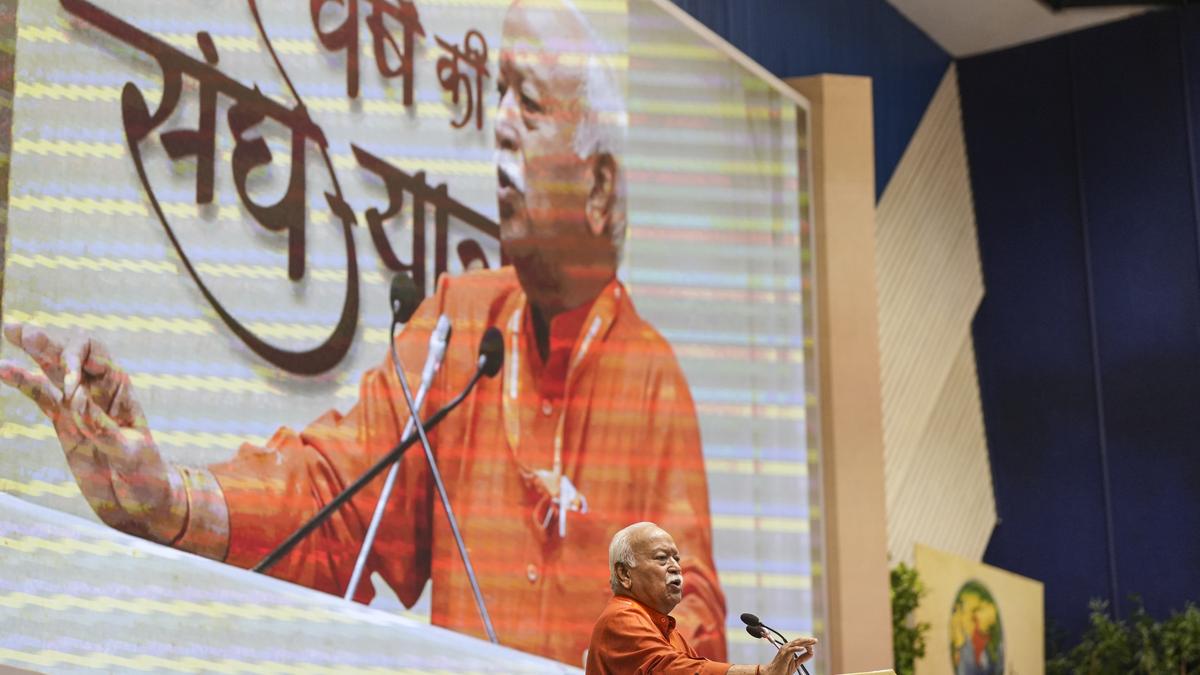Now Reading: Mohan Bhagwat: Trade Must Be Voluntary, Not Driven by Pressure
-
01
Mohan Bhagwat: Trade Must Be Voluntary, Not Driven by Pressure
Mohan Bhagwat: Trade Must Be Voluntary, Not Driven by Pressure

Fast Summary
- RSS Chief’s Remarks on Trade Policy: Mohan Bhagwat emphasized voluntary international trade without external pressure and encouraged reliance on swadeshi (local) products. He noted that self-reliance dose not mean halting imports or exports but promoting cooperation in trade.
- Appeal for Swadeshi Lifestyle: Bhagwat suggested prioritizing home-made products over foreign alternatives, citing examples like lemonade instead of Coca-Cola, and avoiding cheaper petrol from other states.
- History of Swadeshi Advocacy: RSS affiliates like the Swadeshi Jagran Manch have previously endorsed concepts such as “vocal for local” and “self-reliance.”
- Outreach to Other Communities and Nations:
– Acknowledged caste discrimination as detrimental to society, advocating inclusivity irrespective of caste distinctions in daily-life practices like sharing temples and water sources.
– Emphasized strengthening relationships with neighboring countries, highlighting cultural similarities despite geopolitical boundaries. He argued for India’s responsibility to ensure peace, stability, growth, and environmental harmony in the region.
- Nation-Building Vision: Encouraged citizens to contribute positively through actions such as using local goods, keeping public spaces clean, conserving resources, adhering to laws (e.g., traffic rules), and fostering empathy by exposing children to diverse segments of society.
Indian Opinion Analysis
Mohan Bhagwat’s remarks underline a vision focusing on self-reliance driven by both economic strategy and cultural ties. His call for prioritizing locally manufactured goods aligns with ongoing national movements advocating “vocal for local,” aiming at sustainable economic practices while reducing dependence on imports. Such appeals may impact consumer behavior if widely adopted but will likely require sustained policy support.
The emphasis on expanding outreach toward neighboring countries presents an inclusive geopolitical approach rooted in shared histories-a perspective that could influence regional diplomacy if paired with actionable bilateral initiatives promoting stability. His comments about caste discrimination highlight a social challenge; advocating inclusivity reflects progressive intentions amid enduring structural inequities.
While his nation-building guidelines focus pragmatically on day-to-day acts contributing to societal betterment-from abiding laws to embracing humility-their execution hinges substantially upon individual adherence across diverse socio-economic groups. the speech integrates grassroots socio-cultural ideals with broader policy perspectives aimed at unity both within India and across its borders.
Read more: [Link provided above].
























